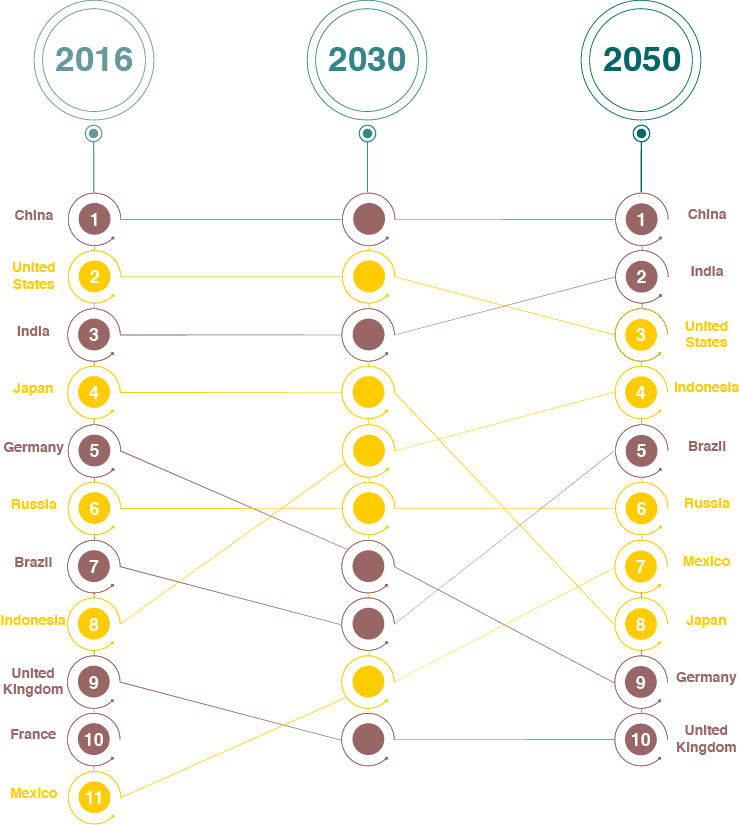If you spend any time reading reports from the United Nations, International Monetary Fund or even the Wall Street Journal, the year 2050 holds great significance. As an upper limit to most peer-reviewed forecasts, the next few decades are widely considered fundamental to solving some of the world’s most significant challenges. Facing an unprecedented increase in our global population, accelerating environmental degradation and the limited reserves of our most essential resources, we must adapt to strengthen our way of life now and for generations to come.
So what will life be like in 2050? Firstly, there will be considerably more people. 9.7 billion to be precise, which will increase the level of sustenance needed across the world. Over half are expected to live in regions suffering from severe water stress. Millions could be without food as global yields of wheat and corn are expected to drop by nearly 10%. The majority of the world’s fish populations will have become extinct due to increased demand. Less than half of our rainforests will still be viable ecosystems. High water levels and extreme weather events will become commonplace. Fortunately, there’s plenty of room for optimism, especially when the impressive rate of social and economic development over the last century is considered. Genetic engineering will offer treatments for our most deadly diseases. Poverty will be abolished. Almost all adults will know how to read. Renewable, clean energy will power most of the world. The Internet will reach every corner of the planet and artificial intelligence will bring innovation to a level never before imagined.
While there is no denying that we live in exciting and volatile times today, the global economy is expected to more than double in size by 2050. The entire economic order is on the verge of profound change as emerging markets such as China, India, Brazil and Russia become the major catalysts for growth around the world, increasing their share of global GDP from 35% to 50%. By 2050, global economies such as Indonesia, Brazil and Mexico are likely to be larger than the UK and France, while Pakistan and Egypt are expected to overtake Italy and Canada. While economies that are advanced today are likely to continue enjoying higher incomes, emerging economies will be making great progress towards closing the gap. This will ultimately open up important opportunities for businesses and individuals making long-term investments in these markets.
.
Projected GDP Rankings (at Purchasing Power Parity)
Source: World Bank (2017)
.
Decades of social, economic and environmental innovations will likely alter and improve the world in many astounding ways, although at the same tine new challenges will rise alongside these solutions, creating the need for new, viable alternatives. To secure global economic growth in the future, we must avoid a total slide back into protectionism and ensure that the benefits of globalization are felt more equally across society. Structural challenges, such as climate change, food security and aging populations, require new technologies to ensure that long-term global growth is environmentally responsible and sustainable.
For investors, there is profound need to look beyond the short-term challenges of a volatile marketplace and develop strategies that help solve our global grand challenges. This will ultimately help create true and long-lasting value and allow our ever-growing world to thrive sustainability and intelligently.
